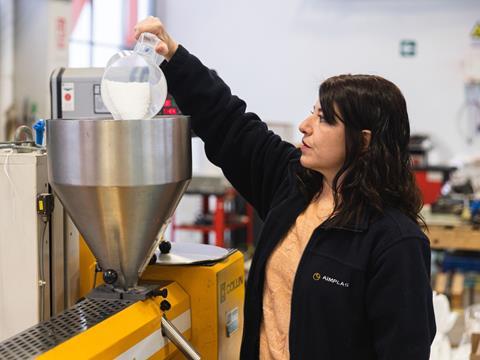
AIMPLAS is developing PHA-based water vapour barrier coatings for bioplastics and reinforced materials with improved mechanical properties as part of the European PRESERVE project – aspiring to preserve food, beverages, and non-renewable resources.
The four-year project, which is coordinated by IRIS, is a collaboration between twenty-six partners. It aims to phase out fossil-based plastics in favour of bio-based alternatives – developing new processes, coatings, and adhesives made from renewable sources, cellulose fibre, and bioplastics, all while creating as little environmental impact as possible.
Furthermore, PRESERVE will apparently upcycle the resultant end-of-life materials into transport boxes, bags, and personal care packaging. It expects to change up to 60% of the packaging currently used on the market and establish Europe as a strong competitor in the industry.
By improving the properties of cellulose-based packaging and producing biodegradable and recyclable substances, AIMPLAS intends to achieve optimal protection for food and drink products, reduce material waste, improve the mechanical properties of its recycled materials, and achieve circularity. It is currently building upon chemical and enzymatic recycling and conventional compounding and flat sheet extrusion processes.
“Our aim is to minimise the use of fossil-based plastics by encouraging the development of bioplastics with the same and even better properties,” explained Lola Gómez, principal investigator of the project at AIMPLAS. “To this end, work is being done on different strategies to improve properties such as the development of barrier coatings based on proteins and PHA, the development of bio-based adhesives, the application of e-beam irradiation to improve barrier and mechanical properties, and the development of polymer reinforcement technologies to improve the properties of recycled bioplastics.
“We also focus on improving the end of life of these materials through the use of enzymatic recycling of biopolyesters to obtain oligomers that can be used as additives, the use of enzymes embedded in bioplastics to improve the biodegradability of materials, and the use of enzymatic detergents to favour the delamination of multilayer structures. Work is thus being done to obtain new materials that are sustainable when created and to improve their end of life.”
PRESERVE has received funding from the European Union’s Horizon 2020 research and innovation programme under grant agreement No. 952983. The project is currently at its halfway stage, with AIMPLAS hosting the 24M general meeting of the project consortium in February 2023.
Siegwerk’s UniNATURE Water-Oil Barrier Coating was certified for single-use paper plates in March, with the move anticipated to preserve fibre-based resources in the material loop.
DSM Engineering Materials also unveiled its AI-based digital tool, Lucidiris, earlier this year. The platform is apparently capable of predicting the colour and mechanical properties of several high-performance material grades.
Last year, European Bioplastics predicted that the global capacity of bioplastics production would increase by 4.7 million tonnes by 2027, although Cepi’s sustainability director, Anna Papagrigoraki, warned that the substitution of traditional polymers with bio-based alternatives is more complicated in practice.
If you liked this article, you might also enjoy:
McKinsey on whether or not on-pack sustainability claims affect consumer spending
A deep dive into the most important packaging sustainability trends and solutions














No comments yet